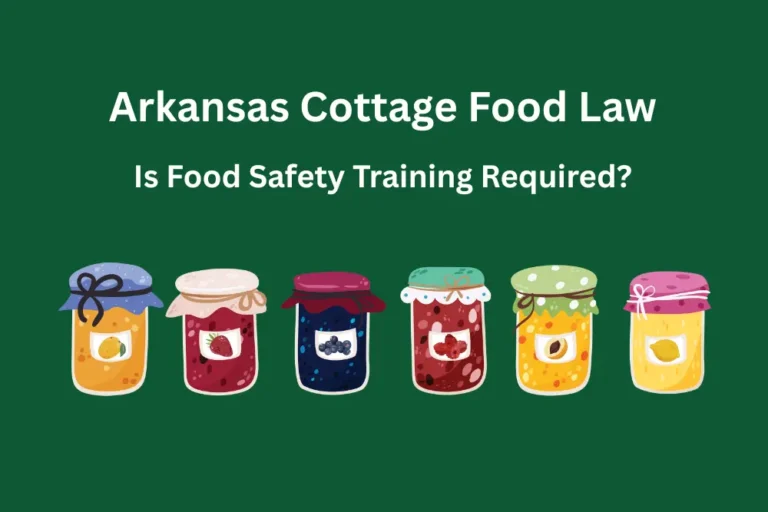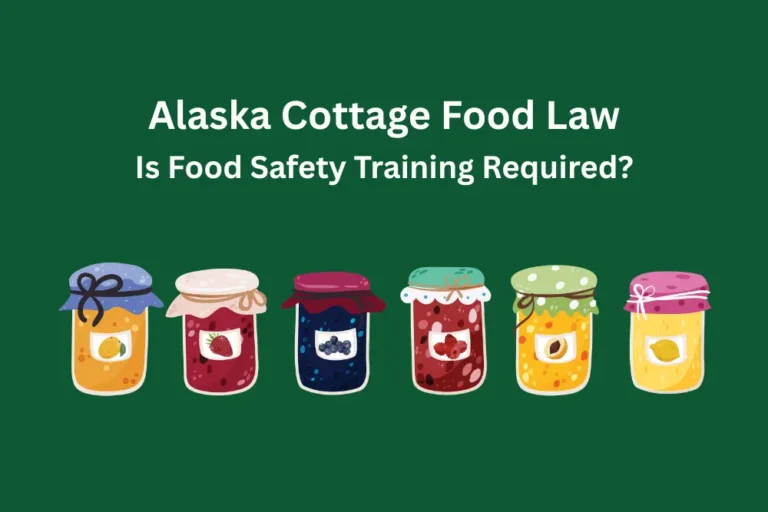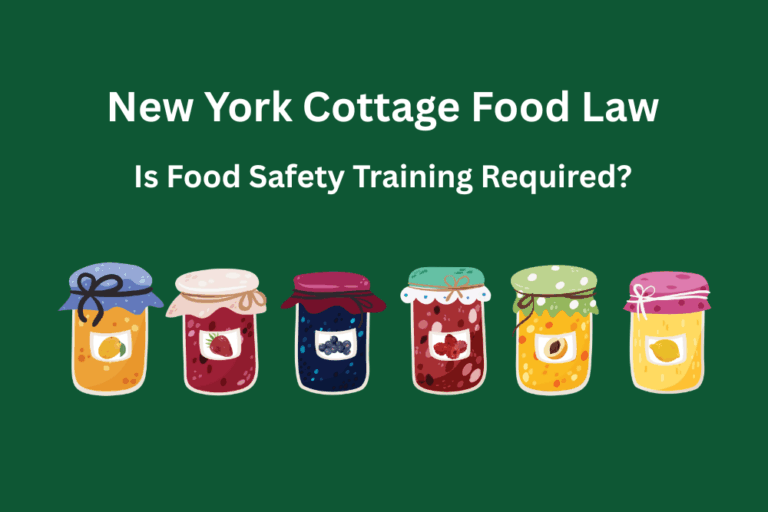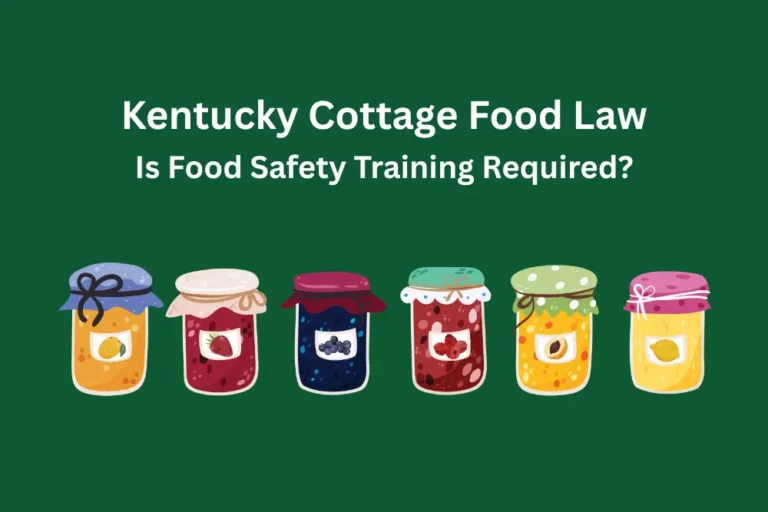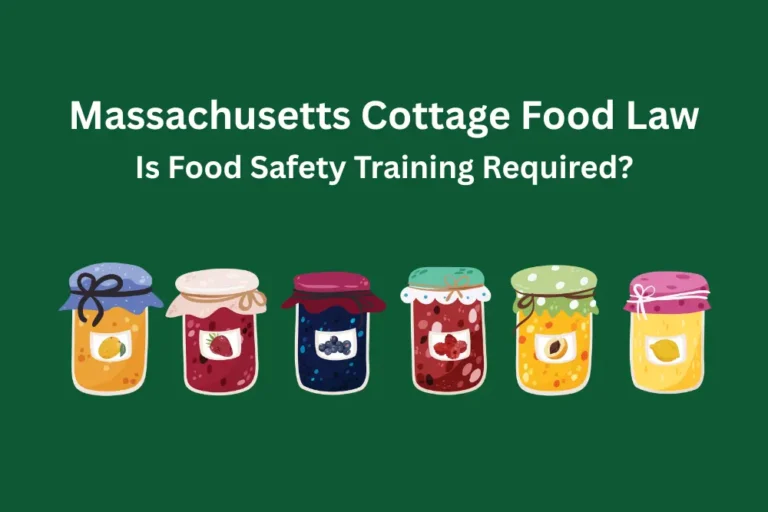Maine Cottage Food Law: Do You Need Food Safety Training?
Article Summary
Selling homemade food in Maine? The cottage food law doesn’t require food handler training, but getting your card can still give your business an edge. This quick video explains why it’s worth it, what you’re allowed to sell, and how to get your food handler card online with FoodSafePal.
Selling homemade food can be a great way to share your products and earn extra income, but every state has its own rules you need to follow.
Each state sets its own cottage food laws that define what you can make, where and how you can sell it, and whether you need food safety training.
This article explains Maine’s cottage food laws and whether you need food safety training to sell homemade food.
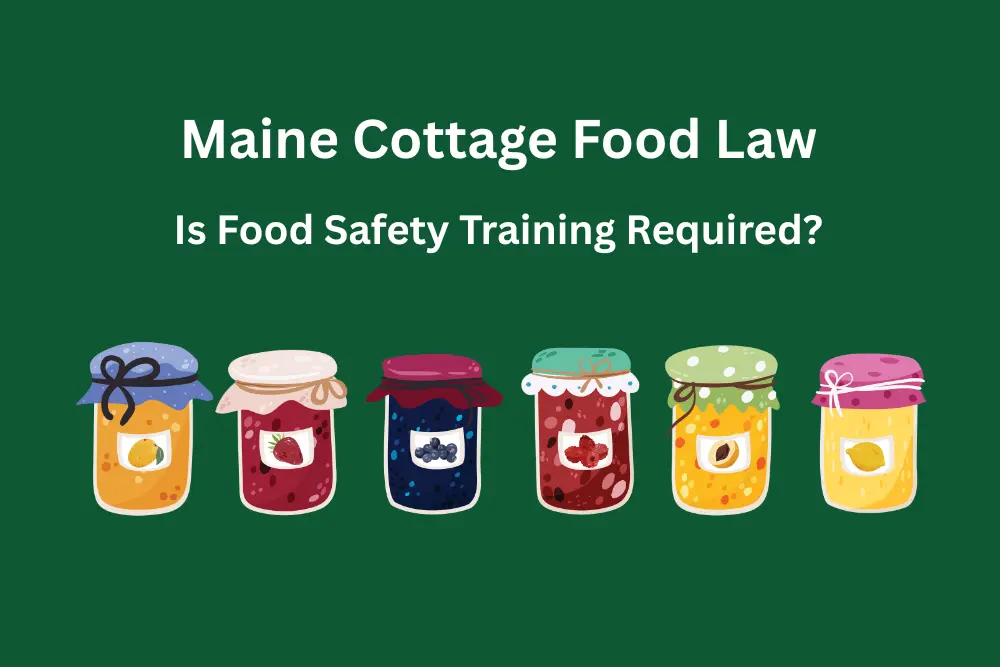
Maine cottage food law
Maine has two different systems for selling homemade food:
- Maine Home Food Manufacturing (state-licensed)
- Local Food Sovereignty ordinances (town-approved)
The rules that apply to you depend on which path you use or where you live.
Maine home food manufacturing
Under this system, you can produce and sell many types of shelf-stable homemade foods, but you must:
- Apply for a state Home Food Manufacturing license
- Pass an initial home kitchen inspection
- Meet sanitation, equipment, and water testing requirements
Once licensed, you can sell a wide variety of non-hazardous, shelf-stable foods, including:
• Baked goods (non-refrigerated only)
• Jams, jellies, and fruit butters
• Pickles and other acidified foods
• Salsas
• Dried fruits and vegetables
• Candies
• Honey
• Popcorn products
• Dried mixes
• Syrups
• Cereals and pastas
These products must be safe to store at room temperature.
Under Home Food Manufacturing, you cannot sell:
• Refrigerated or frozen foods, such as cheesecakes, cream pies, or custard desserts
• Low-acid canned goods
• Fermented foods
• Meat or poultry products
• Foods requiring pressure canning
You also must submit recipes for acidified products (like certain pickles or sauces) to a process authority before selling them.
You can sell at farmers markets, roadside stands, community events, retail stores, restaurants, online, by mail order, and through home delivery.
Local food sovereignty ordinances
If you live in a town that has adopted a Food Sovereignty ordinance, the rules are much broader.
These ordinances allow you to sell almost any homemade food directly to consumers, including:
- Refrigerated baked goods
- Fermented foods
- Low-acid canned goods
- Acidified foods
- Jams and jellies
- Dried foods
- Cereals and grains
- Honey
- Fish and seafood products
- Most items normally restricted under state rules
The major exception is meat and poultry, which must still follow state and federal inspection laws and cannot be sold under a Food Sovereignty ordinance.
You must sell directly to people from your home or farm, at farmers markets, roadside stands, and community events, or through deliveries or private arrangements, but you cannot sell online, by mail order, to restaurants or retail stores, or to anyone who will resell your product.
Summary
Maine has two ways to sell homemade food: the state-licensed Home Food Manufacturing program and locally adopted Food Sovereignty ordinances. The state program allows sales almost anywhere but limits you to shelf-stable foods. Food Sovereignty towns allow a much wider range of foods, including refrigerated and fermented items.
Do you need food safety training to sell homemade food in Maine?
Maine does not require food safety training or a Maine food handler card to sell homemade food, whether you’re operating under the state’s Home Food Manufacturing program or under a local Food Sovereignty ordinance.
Still, completing a food safety course is a smart way to protect your customers and build trust in your business. Some farmers markets, event organizers, or even insurance providers may ask for proof of training before allowing you to participate.
If you decide to get trained, choose an ANSI–National Accreditation Board (ANAB)–accredited food handler course so your training meets recognized national standards.
FoodSafePal’s Food Handler course is ANAB-accredited, fully online, and takes about 90 minutes to complete. Once you pass, you’ll get immediate access to your food handler card and certificate, plus the option to order a printed version for display at markets or for your records.
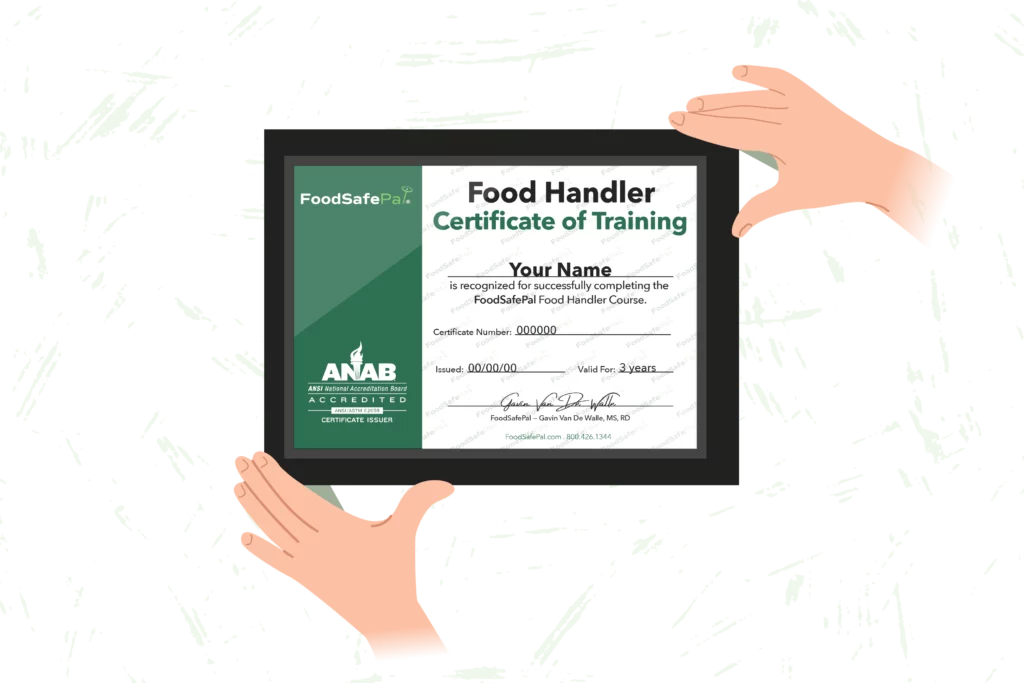
Get Your Maine Food Handlers Card
Instant certificate. 100% online in about 90 minutes.
Summary
Food safety training isn’t required in Maine, but completing an ANAB-accredited food handler course, such as the one offered by FoodSafePal, can help you meet market expectations, build trust, and demonstrate that you take food safety seriously.
Labeling requirement
Label rules depend on which system you use.
Home food manufacturing (state-licensed)
If you sell your products anywhere outside your home, your label must include:
• The product name
• Ingredient list in descending order by weight
• Net weight or numerical count
• Your name and address
If you sell directly from your home, labels are not required.
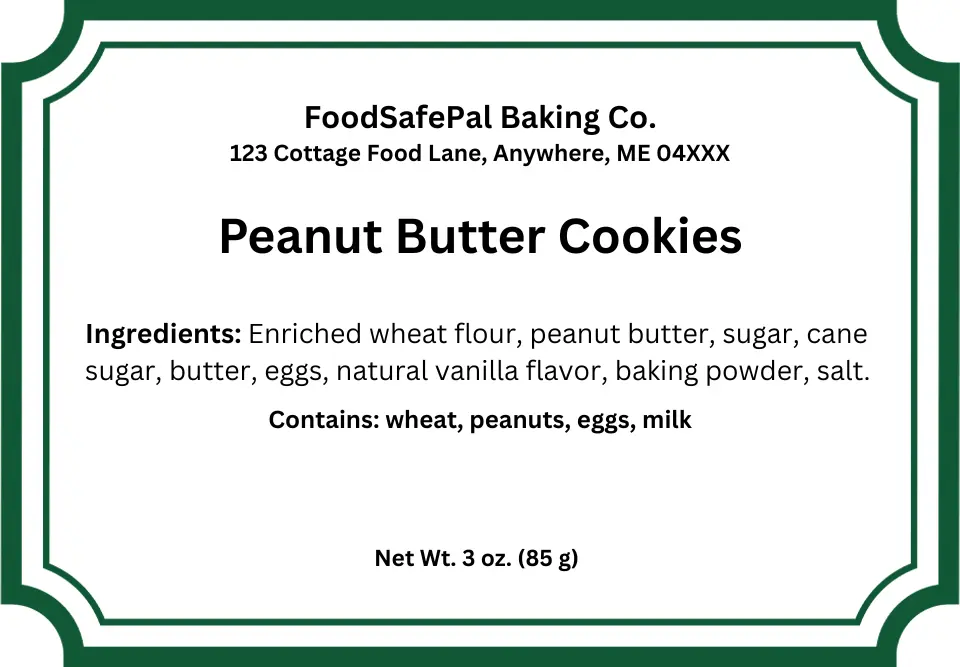
Food Sovereignty towns
Food Sovereignty ordinances generally do not require labels, unless a specific town adds its own rule (most do not).
Even though labels may not be required, it’s still good practice to display what the home food manufacturing law requires.
Providing this information helps customers feel confident in what they’re buying and gives your products a more professional appearance.
Summary
State-licensed Home Food Manufacturing requires full labels when selling anywhere outside the home. Food Sovereignty ordinances generally do not require labels, but including product and ingredient information is still a good practice and helps build customer confidence.
The bottom line
Maine has two different ways to legally sell homemade food: the state’s Home Food Manufacturing program and locally adopted Food Sovereignty ordinances. Home Food Manufacturing requires a license and limits you to shelf-stable foods, while Food Sovereignty towns allow a much wider range of foods as long as you sell directly to people.
Food safety training isn’t required under either system, but completing an ANAB-accredited food handler course from FoodSafePal can strengthen your business, help you meet local expectations, and build customer trust.
Labeling rules depend on the system you use, but including product details is always a good way to help buyers understand exactly what they’re getting.

Get Your Maine Food Handlers Card
Instant certificate. 100% online in about 90 minutes.

